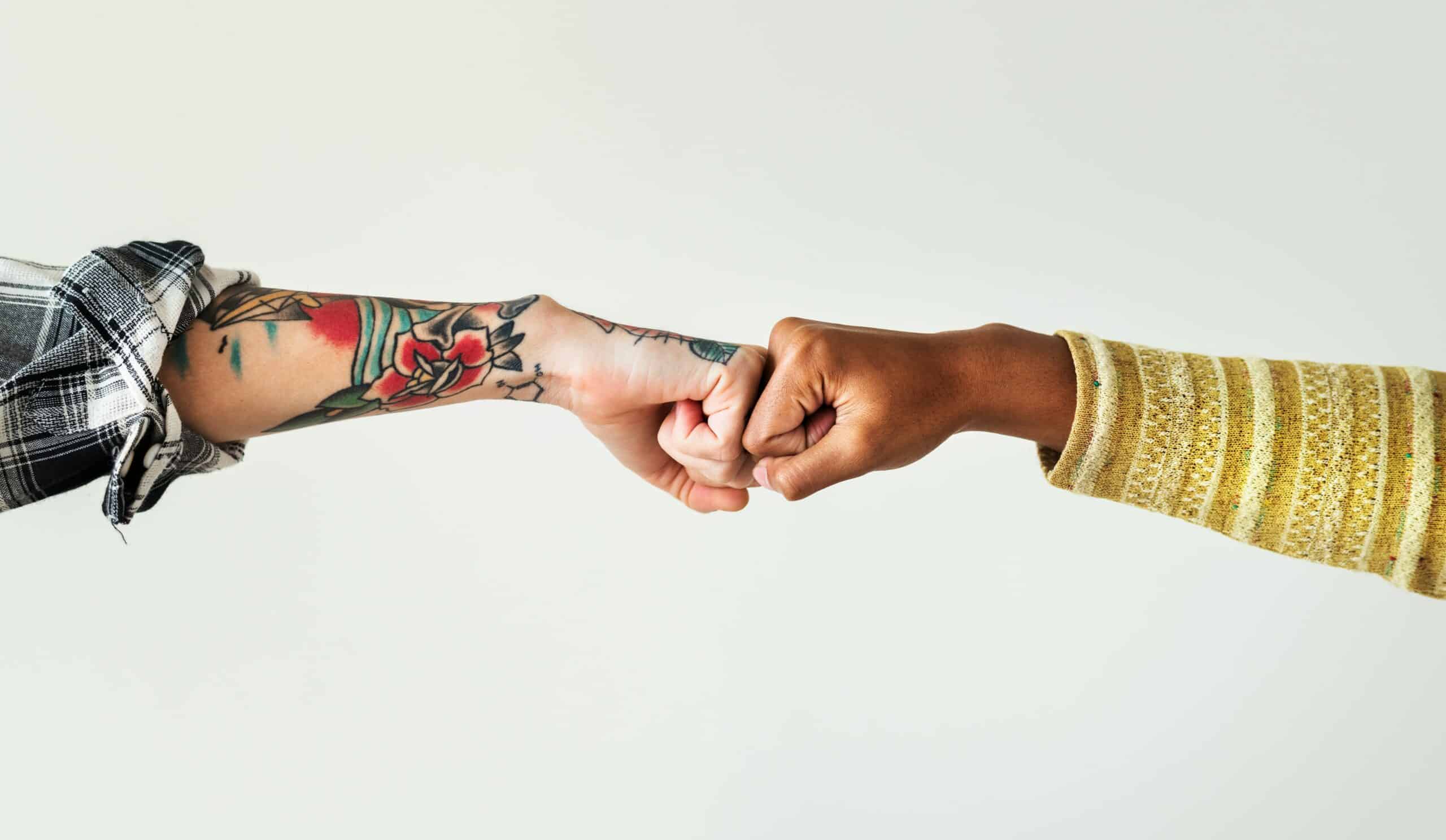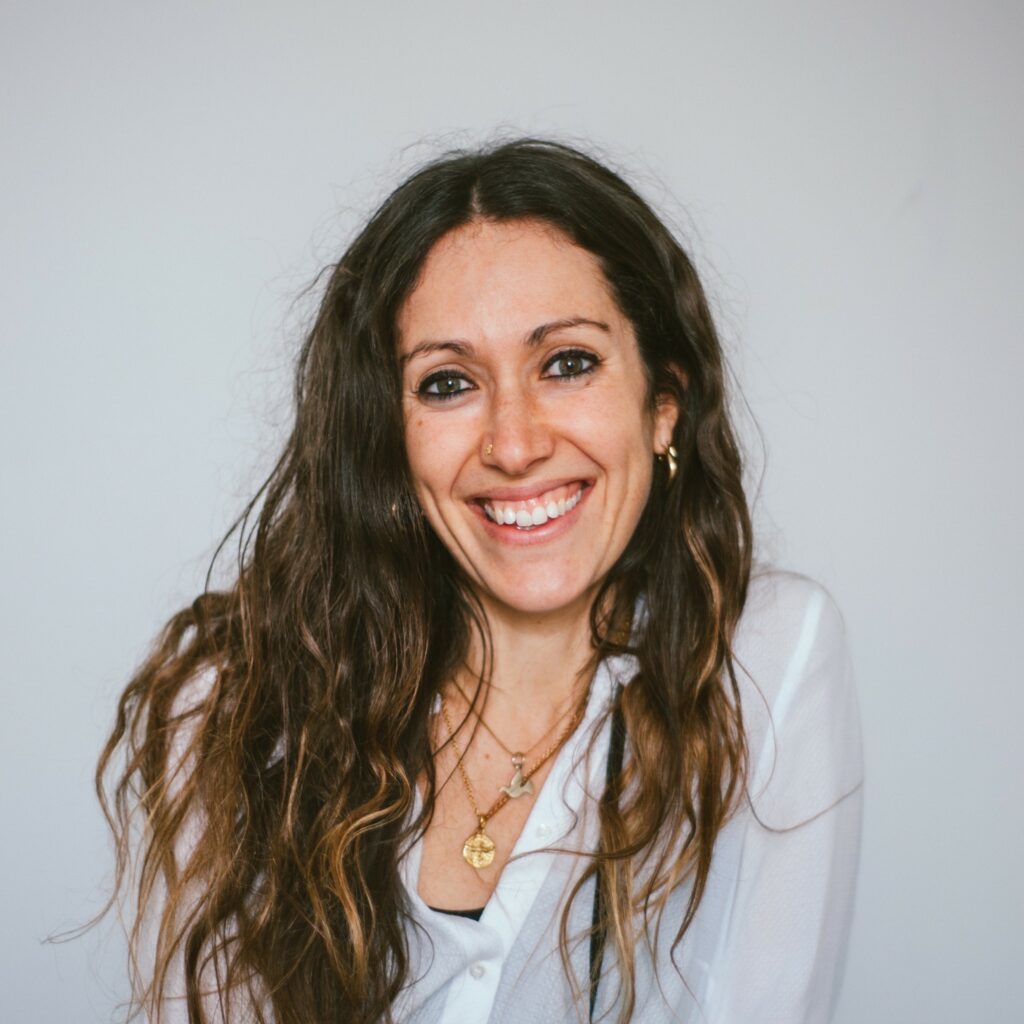
Good friends are so important, but how can we maintain healthy friendships when we disagree? Becs Dhillon reflects as we mark the UN’s International Day of Friendship.
Good friends are the greatest gift. I often think it’s friendship that transforms the ordinary and mundane into the most joyful and meaningful parts of life – but these days it can feel hard to make friends and even harder to keep them.
Loneliness is becoming an increasing problem and apparently, loneliness is worse for you than smoking two packets of cigarettes a day1. How they work that out, I don’t know, but what is obvious is that loneliness is bad for us – and friendship is the greatest antidote to loneliness.
As a mediator I see the destruction of disagreements and division on all relationships, including friendships. It overflows and affects more than just the people in conflict.
A polarised society
Today’s society is struggling to cope with different political views. 45% of Americans say they have avoided certain friends due to politics2. In the UK, according to one poll cited in the Guardian, 50% of under-30s and 30% of over-30s have stopped talking to someone for voicing a political opinion3.
Most of us like the idea of having a diverse group of friends from different parts of the world, a variety of ages and backgrounds – but the reality of friends having different views to us can be difficult and jarring. When we look at the stats above it can feel like friends very quickly become our enemies. As Christians we are told to “love your enemies”. If we should love our enemies, shouldn’t loving our friends be a whole lot easier?
When my husband and I spent some time living in the US, we particularly connected with one family we were working with. We hung out, had a real laugh, and had deep and honest conversations. One day they told us how they had multiple guns. As Brits we were shocked and confused – I remember thinking that there’s no way we could stay friends with them. It was a moment when our political views came to light, and they were very different.
I had to ask myself if any of the previous things that made us feel loved and connected changed. They hadn’t. I realised that our different views were determined by the influences and cultures we’d grown up in. I had to deal with my own judgments and convictions and realised that even though I wouldn’t change their opinion, that didn’t mean they were bad people or that we couldn’t be friends. Actually, it was an opportunity to learn about why someone thinks so differently.
Be counter cultural
“Do not conform to the pattern of this world.” (Romans 12:2)
The model of friendship in the bible is that of crossing divides. Jesus chose a group of friends radically different from each other. Matthew, as tax collector, performing a role hated by fisherman like Peter, Andrew, James, and John. He even chose those with contrasting political affiliations to his own. He chose Simon the Zealot. The Zealots used violence to pursue political ideas while Jesus repeatedly advocate peace. So, if society is pulling away from people who think differently to us, how do we move towards each other instead?
- Spend more time building the foundations of friendship than dissecting your differences
Eat together, laugh together, and have fun together. The more time we put into strengthening a friendship, the more that friendship can withstand the challenges when they come. When we feel loved we can be ourselves and be more open to challenge. - Be quick to listen and slow to judge
If we stop and hear why someone feels, thinks, or acts the way they do the more we will understand them. Listening – really listening – is an act of love. - Be open to differences and look to unity
It’s not normal to think exactly the same way as all our friends. Look at Jesus’s disciples – they came from different backgrounds, had different ideas and perspectives but they were united in their desire to follow Jesus. In the end, that was more powerful than their differences. Give more time to the things that connect and unify you than the elements that divide you.
Having friends with different opinions opens up our eyes to different worlds and different worldviews. It’s okay to keep your opinion, but it’s also okay to listen and try to understand why someone has theirs. A challenge is to look at all our friends and think, “do any of them think differently to me?” If you don’t agree with some of your friends, that is actually a healthy sign and helps us understand different opinions.
When challenges arise in a friendship it’s natural to feel apprehensive about addressing them. Instead of viewing your disagreement as a “difficult conversation,” it can be an opportunity to learn and grow the friendship. Here are a few steps that can guide that conversation:
- Explore each other’s stories, aiming to understand the situation. There will always be different interpretations. Share what impact the other person’s story had on you and ask what impact yours had on them.
- Try to understand the contribution you could have made. Acknowledging our own impact and part in the conflict can help others to see theirs too.
- Describe your own feelings and listen to others without judgment. You wouldn’t feel apprehensive about the conversation if feelings were not part of it. Look below the surface. There are often other factors at play – fear of rejection, fear of being judged. These past experiences can shape how we respond.
- Problem-solve solutions together. What would stop this disagreement from hurting our relationship again in the future?
We’re still friends with the North American couple to this day – opinions unchanged. If that had been the end we would have missed out on a great friendship. Our good friends are those we can laugh at our differences with. Friendship will give you so much joy in your life – don’t let conflict steal the blessings it can bring.
- https://podcasts.apple.com/us/podcast/friendship-is-medicine-the-surprising-science-behind/id1382804627?i=1000693975144 ↩︎
- https://theharrispoll.com/wp-content/uploads/2023/11/Political-Avoidance-Survey-November-2023.pdf ↩︎
- https://www.theguardian.com/commentisfree/2021/jul/09/friendships-divided-politics-relationships ↩︎

Becs Dhillon is an experienced mediator and conflict coach with a diverse background in resolving disputes. She provides mediation services across various settings, from workplace conflicts, community disputes to family relationship breakdowns. She’s also a qualified barrister, a podcast host, and has had a dynamic and varied career, having been based in the UK, India, and Italy at different points.



